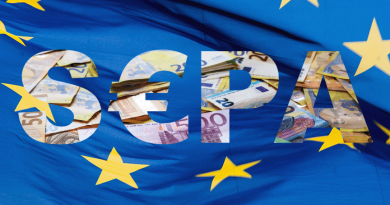Is the dismal science back?
Daniel Dăianu is Professor of Economics at the National School of Political and Administrative Studies, Bucharest, President of the Romanian Fiscal Council, Fellow of the Romanian Academy, former MEP, and a Former Finance Minister of Romania
I had qualms about using the expression dismal science to portray economics; this term goes back to the XIX century, in controversial writings by Thomas Carlyle and in Thomas Malthus’ thoughts on the scarcity of natural resources facing population dynamics – which is a theme resuscitated by the Club of Rome about half a century ago.
My reservations originated in a fear that this ‘dark’ qualification would be exceedingly pessimistic, that it is not appropriate to compare the current scientific-technological era with the age when a multifaceted industrial revolution was underway in Great Britain; that the society described by Charles Dickens’ gloomy novels is not to be compared with the modern world, that brought many hundreds of millions of people out of abject poverty outside Europe and North America.
On the other hand, feelings and aspirations, joys and apprehensions have roots in people’s actual lives, in their social, economic and cultural ties, in the ways in which public authorities cater for basic public needs – with the latter originating in concrete situations.
At the same time, up to date technologies do not enhance livelihoods of all individuals automatically. For instance, smart phones do not enable access to civilization, to equal chances for everybody. And such examples are plenty of in our world.
Economics cannot be a factotum…
What has occurred in various domains, in recent decades, can easily induce the perception of economics as a dismal science – as an interpretation of the ways economies/societies evolve and in a normative sense. It pays to remind in this respect the famous Queen Elizabeth II’s observation that economists were not capable to anticipate the global financial debacle.
Pieces of bad news keep bumping into us, although not a few individuals enjoy the use of products and services that define modernity and attempt to live normal lives in spite of bad events; cultural life is ever richer, sport events go on despite organizational blows (as was the case during the pandemic), people travel worldwide even when restrictions are tightened, TV channels and other media outlets provide all kind of entertainment.
And what matters most, big and small goodies are part and parcel of family lives, as are big and minor disappointments. At the same time, The New industrial revolution, seems to have gone into a shady area in public debate and is not seen as an all-round problem solver.
But it is foolish to blame economics for all that is bad in our world, for natural calamities and ugly things that are not related to Man’s action. Similarly wrong is to frown at economics when blatantly mistaken policies are undertaken, or when inter-ethnic and religious conflicts erupt, or military disputes cause havoc.
It is fair to admit however, that economics is not a hard science, be it seen as the queen of social sciences. In addition, since its very inception, economics was filled in with conflicting ideas, controversies.
But it is not difficult to point the finger at bad management practices, which can be entailed, inter alia, by ignoring hard scientific data (rejectionists of COVID-19 and of climate change are clear examples in this regard).
And most of all, one-sided economic ideas, paradigms that prevail in certain periods of time, can undergird poorly defined policies and cause widespread pain. This did happen, for instance, with the light touch regulation of financial markets, a blind, driven by vested interests and misconceived ideas, deregulation wave. That boom-and-bust cycles accompany the history of finance is no excuse for encouraging and amplifying financial crises via bad policies.
An age of huge shocks, of tail events…
The global financial crisis (The Great Recession), the Pandemic, the energy price shock, climate change and, not least , the invasion of Ukraine by Russia have caused havoc in the global economy; these shocks show up in a persistent high inflation (with levels unseen in the past four decades), a fragile post-pandemic economic recovery, lasting supply side bottlenecks (that fuel inflation), regionalization of trade and economic flows that raise production costs, security and geopolitical motives that increasingly shape policy decisions and influence economies.
The globalization crisis started years ago, well before the eruption of the COVID-19 and the war in Ukraine. Thomas Friedman’s The World is Flat proved to be a naïve thought experiment, as were other hastened interpretations of the world –like Francis Fukuyama’s End of History.
China’s economic rise in the past decades has made the world economy bipolar (some would say multipolar, if the EU is considered as a cohesive pole). The USA have seen their industrial and technological supremacy menaced by China’s steady and fast industrial ascension.
Likewise, during all these decades, fractures and divides have deepened, broadened, in the social and economic fabric of developed societies, and a confrontation between liberal democracy and illiberal/autocratic forms of political governance has gathered pace.
The war in Ukraine has rallied democratic societies together in a confrontation that is ushering in, quite likely, a new Cold War in Europe and other regions of the world; the tendency to end up with several blocs in the global economy will probably accentuate.
Janet Yellen, the US Treasury secretary, talked about a new Bretton Woods, that should be based on democratic, liberal values1; this would drive further the global economy in the direction of a geopolitical divide.
Implications will be manifold and wide-ranging. There is already talk about the erosion of the peace dividend (the share of defence expenses in GDP), that was an outcome of the end of the second world war and, later on, of the fall of the Berlin Wall. The inference is that public budgets will assign more resources for military expenditure and Europeans will no longer be free-riders (related to the USA), in this regard, within NATO.
Economies will get more of the traits of ‘war economies’, be these features more or less camouflaged. Not a few EU member states have already announced significant rises in defence expenditure and the NGEU (The European Plan) will quite likely be adapted in view of the new geopolitical an energy context.
We are living a very difficult period of time and crises have become almost a constant parameter in our lives; this means that public governance will likely be an exercise of crisis management of long duration, with a derived objective of increasing systems’ robustness and resilience
Why GDP increases do not influence many ordinary citizens’ living standards positively
There is a legitimate question: why so many ordinary citizens do not sense an improvement of their lives when GDP goes up in real terms –as was the case before the Pandemic struck and when the recovery started afterwards?
For many individuals, economics appears as a discipline that comes constantly with pieces of bad news, as a dismal science, whose ‘sermons’ are to be related to various policies.
For instance, rising inflation, diminished real incomes, energy price shocks, etc. weaken the public discourse on economic recovery, or economic growth. There is here a ‘Putin effect’ too, the multiple implications of the war in Ukraine. But the analysis has to go more deeply.
Several observations could help elucidate the question raised above; some of them predate 2008, the year when the financial crisis erupted:
-Climate change shows up in a rising number of extreme events, that demand governments to step in in order to limit damage; this public intervention means that resources have to be diverted from other uses and, consequently, public budgets get strained.
-The global financial crisis has had lasting effects, among which higher public and private debts. This higher level of indebtedness has been further heightened by the Pandemic. And, currently, a tightening of monetary policies for containing high inflation points the finger at a ‘debt trap’, that creates big headaches to central bankers and governments.
-Distributional effects that relate to a thinning of the middle class in many advanced societies and to rising inequality.
-Market abuse by big companies, tax evasion and tax avoidance weaken public budgets and foster social resentment. Thence a rising public demand emerged for policies that should enhance fairness in society.
-The energy price shock means essentially a rise in the relative price of energy. This rise is, basically, a higher price of life essentials for most citizens. Winners in the global economy are only countries that export energy massively, which are net exporters.
-The situation gets more complicated if key commodities are factored in; the food crisis (epitomized by the surge of prices for grains) is very telling in this regard. Food as well as key industrial commodities can be, are, weaponized.
-De-globalization itself sustains a rise in prices as a reflection of switching costs and higher productions costs.
-Non-conventional systemic risks, among which cyber risks have prominence, proliferate; threats posed by crypto assets should be highlighted.
-For emerging economies that have large deficits and debts, their inherent fragility is more visible once big central banks tighten monetary conditions.
-Adverse shocks dent potential GDP, as well as potential economic growth. Climate change has to be mentioned in this respect for its major effects.
-In spite of its extolled virtues, artificial intelligence has deleterious effects too: it can ‘get out of control’ unless properly monitored/used, and it can cause massive labour dislocation, that harms social stability.
-Statistics, as a scientific method, is unclear when measuring welfare and income distribution. This explains why GDP is often seen as a misleading indicator unless other social and economic benchmarks are counted for.
Economic policy faces numerous trade-offs and choices can be quite painful – a spectre of stagflation again
Economic policies are often overwhelmed by shocks and the complexity of conflicting goals, with hardly adequate, optimal, solutions in sight. It is not surprising, therefore, why politicians are reluctant to say it loudly, clearly.
The reason is obvious: they are supposed to solve problems, not to look powerless. In addition, they have to inspire people, even under dire circumstances, they need to find ways out of difficulties and exude trust.
It should be said that even when good things can be done these may be obscured by overall circumstances –as in the case of de facto ‘war economies’, or states of acute emergency.
In deep crises policy choices are often of the sort bad vs. even worse. This is the context that explains quantitative easing (QE) programs adopted by various central banks.
Likewise, reforms of finance, which wase derailed by deregulation waves and a plethora of toxic products, neglect of systemic risks and excessive leverage, have to be judged from this perspective as well.
The pandemic has led to a suspension of fiscal rules in the EU in order to avert a collapse of economies, but the flipside is a rise in public debts and budget deficits.
And the rise in debts is quite worrisome in view of monetary policy tightening. Higher inflation can ease the impact of higher expenditure for a while, but is not a solution for the long haul.
Currently, central banks are asked to defeat high inflation. But this is mission impossible as a short run endeavour. Those who ask for positive real policy rates by tomorrow sound out of touch with reality. Imagine what would be the effect of the Fed and the ECB raising their key rates to over 8-9% abruptly.
As sensible opinions say, policy rates need to reach levels above longer-term inflation expectations, above neutral rates. Moreover, the ECB is entitled to fear a new fragmentation shock were its policy rates go up brutally.
It should be said, however, that major central banks seem to have been behind the curve for quite a while; they have underestimated the impact of supply side ruptures that were entailed by the Pandemic and the energy crisis.
The transience of high inflation has proved more of a wishful thinking exercise, although central bankers had motives to fear squeezing economies at a time when the recovery was still pretty fragile. And the war in Ukraine caused additional enormous damage.
The current inflation shock is very much due to supply side ruptures. If a simplistic monetarist thinking would be applied, inflation would have had to be much higher than current numbers indicate; just think that base money in the US rose from c. $840 billion in June 2008 to above $6 trillion in early 2022.
Even now, when high inflation is a rising concern, the massive increase of base money (cash and reserves of commercial banks held at the Fed) is accompanied by a high liquidity preference – which means that money velocity went down dramatically, one cause being sudden stops in various segments of financial markets, which turned the Fed and other central banks in market makers.
However, the Fed could have been more cautious in view of big fiscal stimuli. Big rises in base money can be noticed in the balance-sheets of the BoE, ECB and other central banks.
In economics one meets a misery index, that brings together inflation and unemployment. This index can be used to estimate pain thresholds (trade-offs) when, for example, defeating inflation would cause recession, a hard landing – as it did happen in the US following the oil price shocks several decades ago.
A tandem of high inflation and economic stagnation/recession is a big headache for central banks and governments. Real world is made up of multiple equilibria, and some of them can be pretty precarious.
Magic solutions do not exist as the causes of the current very serious situation are, apart from the impact of the Ukraine war, more or less structural.
These causes have accumulated over time and originate in an asymmetry between market entry and exit, with a suboptimal allocation of resources, pro-cyclical policies, neglect of structural policies in the belief that markets always know best and their functioning is smooth, the overlooking of climate change, unmanaged globalization, etc. The war in Ukraine and its widespread implications exacerbate dilemmas and policy trade-offs.
An unprecedented situation
The sequence of major shocks (crises) is unprecedented after the second world war, and it is going to test social and economic stability in many countries very severely for many years to come.
Where inclusion, fairness, solidarity, transparency, sound public finance and the rule of law are better entrenched, where market abuse is less frequent, odds are higher that this period of time (that may be lasting) would cause less damage.
As public policy choices are concerned, it is reasonable to posit that extreme alternatives are not adequate: an individualist focus in which society does not matterl vs. a centralizing/administrative approach that opts for an overriding state presence in the economy. It is true that in very hard times (like in the pandemic) more public intervention is asked for in order to secure key public goods and avoid social disintegration, chaos.
However, no less important is the need to protect values that define a democratic society and rules that enable a market economy to function, that stimulate innovation and foster entrepreneurship. But it is not easy to optimize and calibrate polities.
Concrete measures must fit concrete situations, even when lessons are spread around and governments learn from each other. These measures hinge on the functioning of societies, and in democracies, they cannot be introduced discretionarily on a permanent basis. Wherever societies are more divided, deep tensions develop and have nasty political implications.
Final remarks
Economics helps public policy by rationality algorithms/rules and procedures provided it does not succumb to fundamentalism and oversimplifications. Learning by doing also helps.
We are living a very difficult period of time and crises have become almost a constant parameter in our lives; this means that public governance will likely be an exercise of crisis management of long duration, with a derived objective of increasing systems’ robustness and resilience.
Miracles are not possible, and economists need more than ever to be humble and intellectually honest in their prescriptions. Economics cannot be alchemy.
Economics and economic practice have their own cycles, they do/can learn from new data and failed policies, interrelate with ideas that percolate throughout our societies; these cycles depend on and influence social and economic dynamics, while pessimism can coexist, or alternate with optimism in the social and cultural ethos, and define a zeitgeist.
Endnote
1. She said it just before the Spring meetings of the IMF and World Bank of April 2022.
This is an English adapted version of the text published on the blog of the National Bank of Romania, 19 May 2022.




